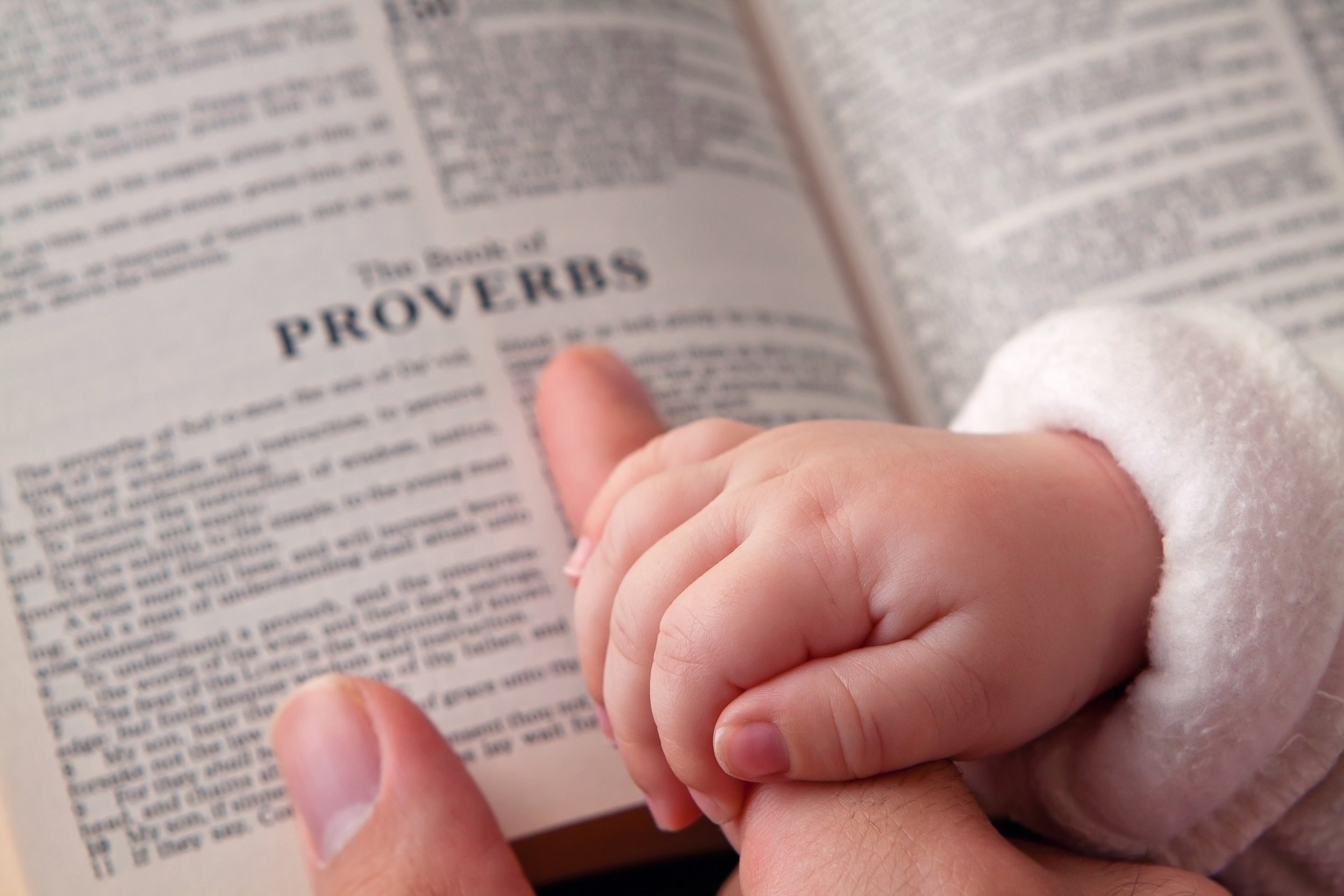Click on the image above for the video of this article or keep reading below for the text version.
Most children learn to ride a bicycle by starting with training wheels. If we’re honest, training wheels look a little goofy. Riding with them is clunky at first. And no child wants to be hanging out with their teenage friends with the training wheels still on. But figuring out everything about riding a bike all at once is often too difficult for a child. The training wheels focus the adjustment and help the child get used to the mechanics of steering and pushing the pedals. After they’ve mastered this, they can focus more on balance. With the training wheels off and the basics figured out, a child might even try out some tricks. Starting with the tricks and ignoring the training wheels is a recipe for disaster, though. I think the same is true of parenting. I’m grateful for the advice I was given about paying attention to the various stages of parenting and what to focus on when. Let me share what I feel are the two most important areas to try and get right.
1. Authority comes before friendship
Many parents have a goal of becoming friends with their children. And who wouldn’t? The idea of having a mature relationship that’s open and free sounds wonderful. But confusing the end goal with the starting point is dangerous. If you try to just be friends when your child is young, you abandon the authority your child requires and the spiritual and moral influence they need in order to become capable of a mature relationship with you or anyone else. If you’re so eager for their friendship that you never establish your authority as a parent, your child’s likely to see you as needy and may never be able to truly respect you as a friend or a parent.
Parenting should begin with an emphasis on authority but slowly exchange that for an emphasis on influence. In the preschool years, a parent needs to establish their authority. Tedd Tripp defines the goal of parenting at this stage as training your child to obey “without challenge, without excuse, and without delay.” You should be able to see how your child views your authority by watching how they speak to you and how they listen when you speak. In the middle years, the goal shifts from dealing with defiance and authority to seeking to shape their character. You’re training your child to act wisely when you’re not watching. To do that, you need to influence more than you control. You teach your child about God, faith, and character, and they begin to internalize qualities like diligence, honesty, generosity, humility, and self-control. You’re trying to nurture your child’s inner ‘want-to.’ In the teen years, if you’ve established your authority and helped your child to grow in godly character, you can function more as a coach and adviser. You don’t have to lead with a heavy hand because the groundwork has been laid. You don’t completely give up your authority, but you can relate more as a friend.
2. Responsibility comes before freedom
Somebody once taught me to start parenting with a tight fist and gradually work toward an open hand. They were trying to help me see that a child is helped with tight reigns when they’re young as long as the reins are gradually loosened over time. Many parents take the opposite approach. When children are younger, parents often give them lots of choices and huge freedoms to make decisions about every part of the day. The parent figures, ‘It doesn’t matter, why not let them decide?’ Then as the child reaches the teen years, their child is making decisions the parent considers dangerous and destructive. Now they try to rein in the freedoms, but the child has lived with them for too long to give them up. The parent either has a war with the child, faces a reluctant truce, or raises the flag and lets their child do what they want, regardless of the consequences.
Rather than try to put the training wheels on after the fact, it’s far better to limit a young child’s freedom from the beginning. The first lesson for a child is to learn to submit to someone else’s decisions. This is a crucial life skill and if your child doesn’t learn it from you, they go out into the world unprepared. As your child learns to submit to your decisions, you can gradually give them the freedom to make their own. A child’s freedoms should grow as they demonstrate maturity and prove their responsibility. That way, you’re preparing them for the teen years rather than just abruptly launching them into a phase where they need wisdom and self-control to handle the choices before them.
Are you putting the parenting cart before the horse? Don’t confuse the goal of parenting with how you get started. Authority comes before friendship. Responsibility comes before freedom. Ask God to guide you through each phase of your parenting as you look to Him as your Father and lean on Him as His child.
In awe of Him,
Paul












